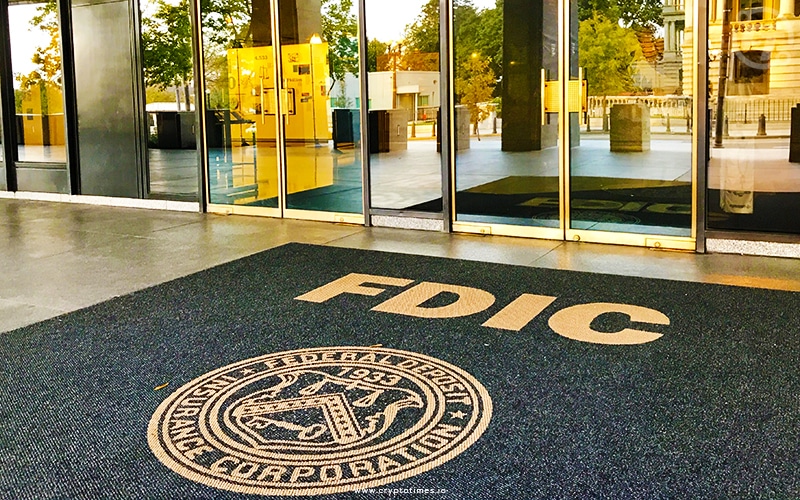The Federal Deposit Insurance Corporation (FDIC) has issued a strong warning to cryptocurrency exchange OKCoin, accusing the company and its senior executives of making false and misleading statements regarding FDIC insurance. In a letter dated June 15, the FDIC highlighted that certain crypto-related products were falsely represented as being FDIC-insured.
OKCoin has been ordered by the FDIC to promptly remove any misleading statements on its website that suggest customer accounts are insured by the FDIC. Failure to comply with this demand could potentially lead to OKCoin violating U.S. banking laws. This move by the FDIC reflects the growing regulatory oversight over cryptocurrency operations, with the possibility of enforcement actions if these inaccuracies are not swiftly addressed.
The FDIC raised concerns about OKCoin’s failure to clearly distinguish between U.S. dollar deposits and crypto assets on its platform, resulting in a false impression. According to the regulator, OKCoin’s statements imply that FDIC insurance, typically safeguarding traditional banking deposits, extends to all types of customer funds, including cryptocurrencies.
In a separate development, the FDIC has taken action against three companies – Bodega Importadora de Pallets, Money Avenue, LLC, and OKCoin USA, Inc. – along with certain officers, demanding an immediate end to their false and misleading statements regarding FDIC deposit insurance.
FDIC Chairman Martin J. Gruenberg expressed worry about the increasing misuse of the FDIC’s name and logo, as well as false representations concerning deposit insurance. He emphasized the potential confusion faced by consumers when dealing with insured institutions and the availability of deposit insurance.
Under the Federal Deposit Insurance Act (FDI Act), it is strictly prohibited to represent or imply that an uninsured financial product is FDIC-insured or to knowingly misrepresent the extent and nature of deposit insurance. The use of the term “FDIC” in a company’s name, advertisements, or other documents to falsely suggest FDIC insurance coverage is also forbidden. The FDIC has the authority to enforce these prohibitions against individuals and entities.
FDIC deposit insurance offers essential protection to customers in the unlikely event of the failure of an insured financial institution. Customers can verify if an institution is FDIC-insured by contacting a representative, looking for the FDIC sign displayed at the institution, or utilizing the FDIC’s BankFind tool. The FDIC encourages consumers to familiarize themselves with general information about deposit insurance and assures its commitment to safeguarding the interests of customers.
Also Read: FDIC gives Deadline for Signature’s Crypto Clients to Close their Accounts






